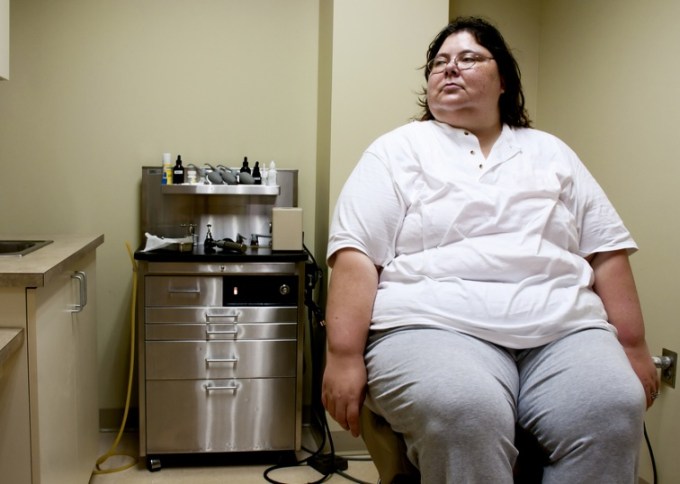
I see four fundamental ways healthcare reform will not just ripple through, but rock the business landscape. Massive growth will likely come from:
[aditude-amp id="flyingcarpet" targeting='{"env":"staging","page_type":"article","post_id":495754,"post_type":"guest","post_chan":"none","tags":null,"ai":false,"category":"none","all_categories":"business,entrepreneur,","session":"A"}']1. Deliverers of Wisdom
With ObamaCare, more than 30 million new Americans will be entering the healthcare system. Many are amateurs; rookies to the system. They haven’t had a primary care physician before. They haven’t had a regular dentist.
AI Weekly
The must-read newsletter for AI and Big Data industry written by Khari Johnson, Kyle Wiggers, and Seth Colaner.
Included with VentureBeat Insider and VentureBeat VIP memberships.
The Internet is a great equalizer when it comes to accessing information. People turn to Yelp for restaurant reviews, Rotten Tomatoes for movie recommendations.
The influx of new users to the health system – almost a 10 percent increase – will need to know: Who is a good doctor? What do other patients think of him/her? What will this procedure cost me? When can I get an appointment?
These folks are generally lower on the socio-economic scale and younger. Their primary point of access is their mobile devices, rather than their PCs.
Expect to see more developers delivering highly relevant and targeted health apps soon.
2. Mad Men & Publishers
No one says they love their health insurance plan. But then again, most health plans don’t spend money on branding themselves.
[aditude-amp id="medium1" targeting='{"env":"staging","page_type":"article","post_id":495754,"post_type":"guest","post_chan":"none","tags":null,"ai":false,"category":"none","all_categories":"business,entrepreneur,","session":"A"}']
Water just came out of a tap until Poland Spring, Dasani & Fiji made people care about getting it bottled and imported. Grocery stores were the unloved place to pick up the week’s produce until Trader Joe’s and Whole Foods created entire food movements. In both cases, new brands were built.
Because of individual mandate, more than 25 million Americans will be buying health insurance on their own. Making their own decisions, rather than getting it through their employers. As a result, health plans will likely spend heavily to become consumer-friendly brands.
Agencies, publishers and media will see sales grow as health insurance companies become clients on their rosters and pump money into the system.
3. Data Crunchers for Evidence Based Medicine
[aditude-amp id="medium2" targeting='{"env":"staging","page_type":"article","post_id":495754,"post_type":"guest","post_chan":"none","tags":null,"ai":false,"category":"none","all_categories":"business,entrepreneur,","session":"A"}']
Buy a car, and you’ll get a warranty. Buy from a catalog and get satisfaction guaranteed. But, buy medical help from your provider, and take your chances.
No more.
As hospitals transform into Accountable Care Organizations (ACOs), they’ll be required to essentially guarantee the effectiveness of their services, or face stiff penalties. Already today, the Affordable Care Act mandates that hospitals who readmit a patient in 30 days or less don’t get reimbursed. Incentivizing healthcare to stand behind their services (effectively guaranteeing results) will fundamentally change the way medicine is practiced.
Today, you could see 10 different doctors for the same illness and get 10 different treatment options. The advent of ACOs, however, means that hospitals will need to apply lots of technology and statistics to understand which treatment plans get the best outcome.
[aditude-amp id="medium3" targeting='{"env":"staging","page_type":"article","post_id":495754,"post_type":"guest","post_chan":"none","tags":null,"ai":false,"category":"none","all_categories":"business,entrepreneur,","session":"A"}']
Evidence-based medicine is ushering in the need for Big Data and companies that can manage and understand it. There are many opportunities for small businesses to help hospitals synthesize treatment data, track outliers, assess risks, and apply financial analysis to procedures and processes.
4. Healthcare Innovators
Healthcare used to be a sleepy industry. Boring, even. But as the biggest government program of this generation gets started, the entire healthcare industry has been thrown into the spotlight. The conversation has moved off Capitol Hill and has become personal. As it should.
We’re faced today with a nation that is aging, as well as becoming sicker. Diabetes has become an epidemic. Obesity is rampant. Couple that with healthcare costs that will hit more people in the pocket, and it’s clear we will all care more about healthcare than Americans have in the past. And we will all champion companies that can transform a lumbering, expensive and highly inefficient industry into in a lower-cost system that yields better results.
[aditude-amp id="medium4" targeting='{"env":"staging","page_type":"article","post_id":495754,"post_type":"guest","post_chan":"none","tags":null,"ai":false,"category":"none","all_categories":"business,entrepreneur,","session":"A"}']
It’s a great time for healthcare innovators, scrappy startups, and dreamers who will revolutionize our system and meet the challenges ahead.
[Top image credit: Rob Byron/Shutterstock]
VentureBeat's mission is to be a digital town square for technical decision-makers to gain knowledge about transformative enterprise technology and transact. Learn More